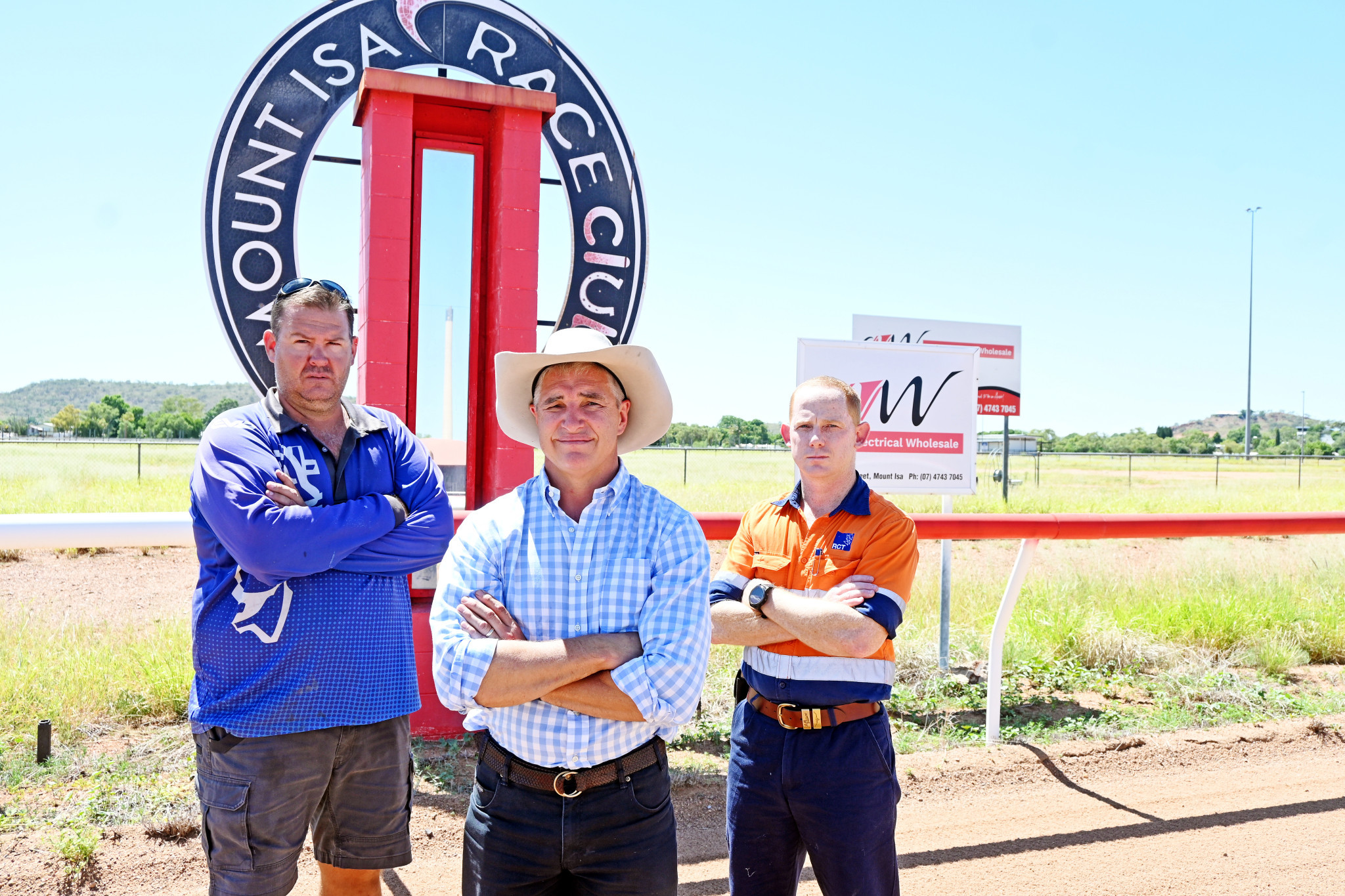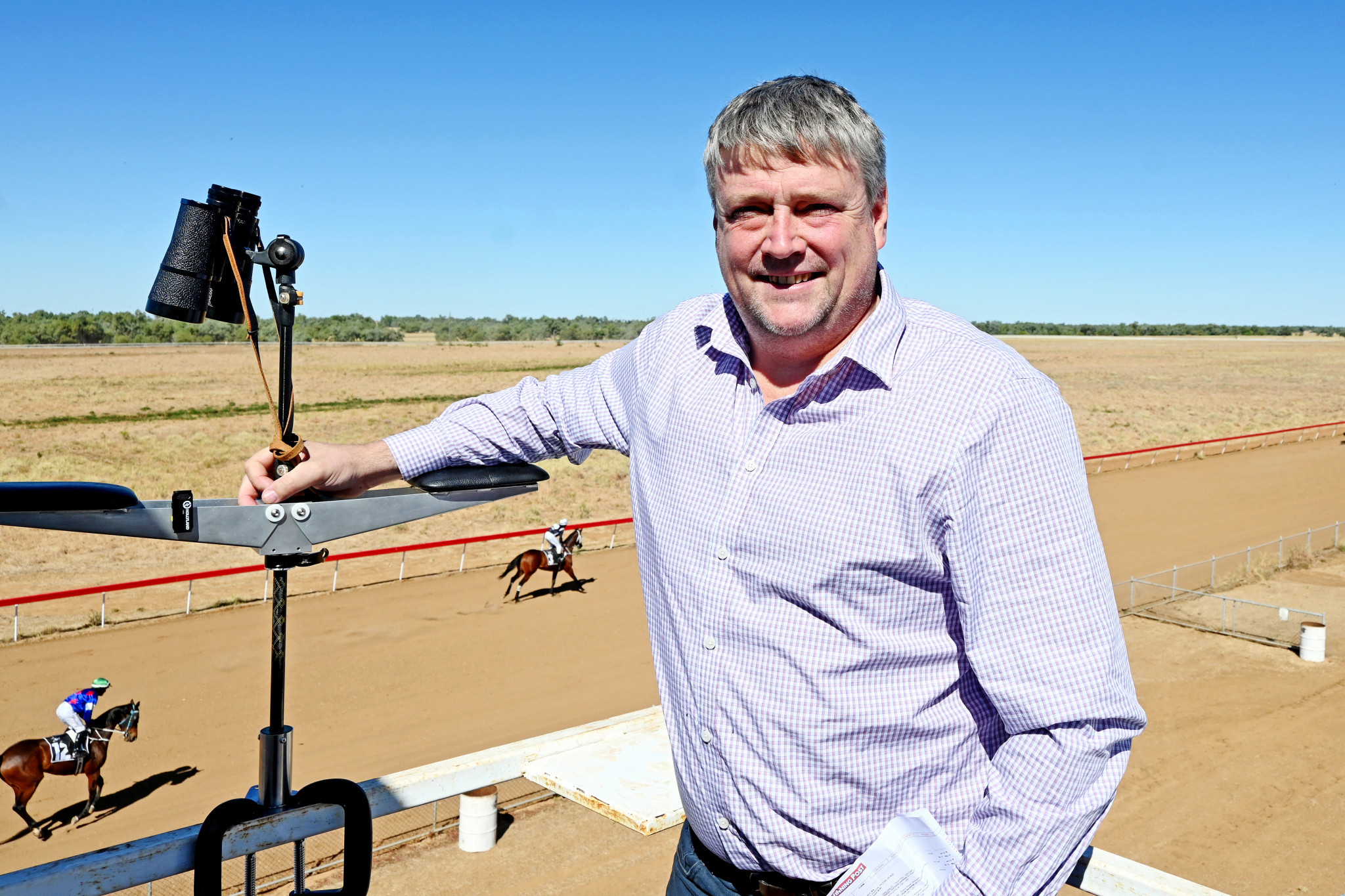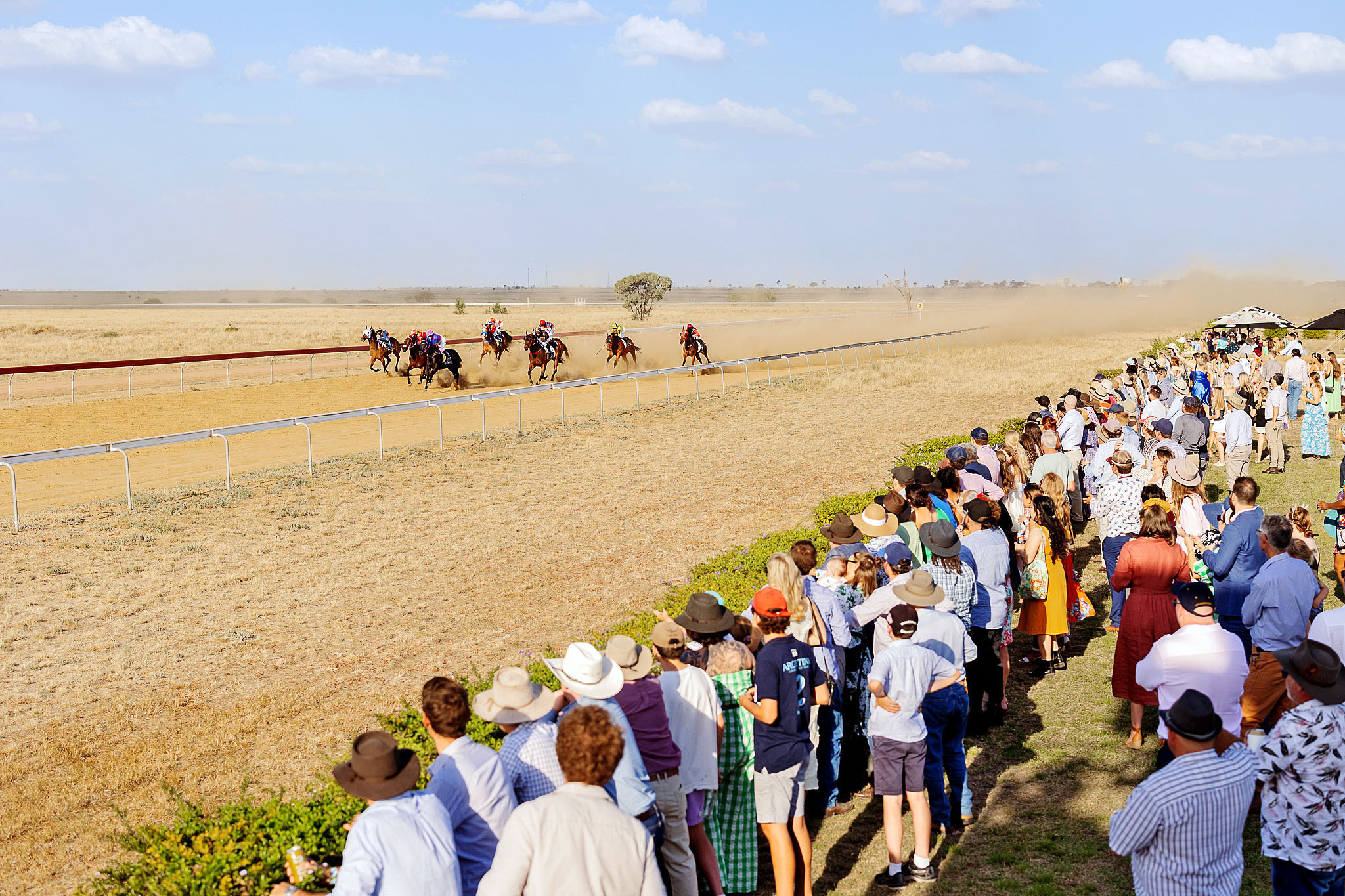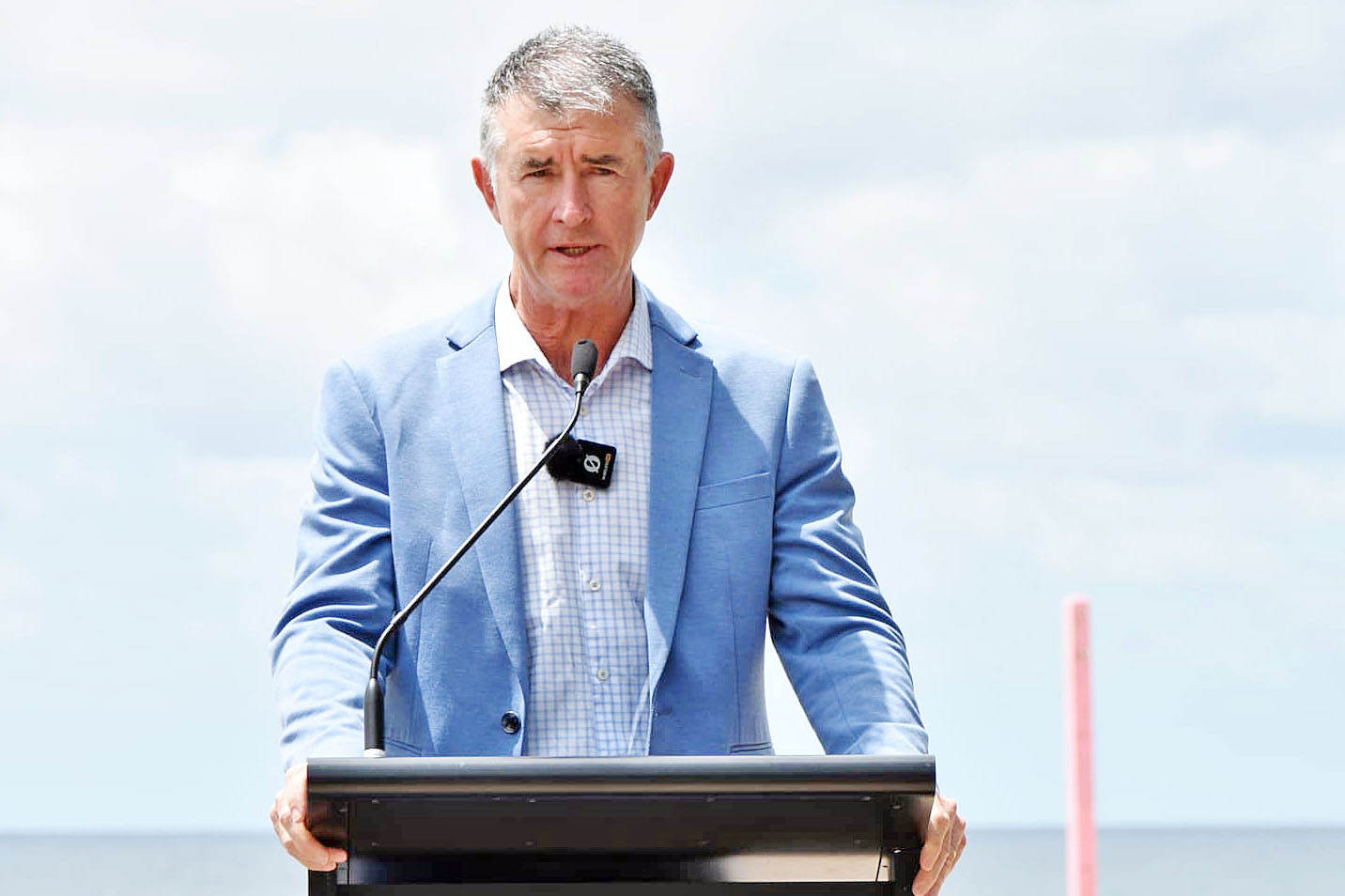Sport
12 March, 2025
Battle of the bush: regional hubs fight to keep their meetings
The North West and Central West racing industries were up in arms at the prospect of having meetings cut from the calendar.

A standoff has emerged in the racing industry after the two major clubs in Outback Queensland were forced to fight for their futures.
In a meeting with the Country Racing Panel last Friday, Racing Queensland (RQ) told delegates that it was willing to protect all of the once-a-year clubs in the bush but, in order to lower costs, it was seriously considering reducing the
number of meetings at hubs in Mount Isa and Longreach.
Mount Isa is the capital of the North West racing region and hosts 12 meetings per year, although it often holds more when it picks up transferred meetings from other clubs in the region if bad weather intervenes.
Longreach holds a similar role in the Central West and stages nine meetings each year.
“I was a bit flabbergasted, to be honest,” said Mount Isa Race Club president Jay Morris when told of RQ’s plans.
“We are the major centre out here that gets called upon to prop up race meetings after rain events or just general incidents at tracks that don’t allow them to race.
“We take them on at short notice for the benefit of the industry.
“I thought we were pretty safe from any cuts because we are a major centre.
“We don’t want any cuts anywhere, to be honest. We want it to be status quo.”
Those thoughts were echoed by Longreach Jockey Club president Andrew Watts, who is also a caller at some of the North West’s major race meetings.
“It seemed like a backflip from Racing Queensland, who at the end of last year was talking about closing down once-a-year clubs, or at least the potential of that happening,” he said.
“To take meetings away from the bigger clubs like Longreach and Mount Isa, who they’ve spent millions of dollars on with infrastructure upgrades, it seemed a bizarre way of thinking.”

The Country Racing Panel was blindsided by the news, according to the North West’s new delegate Dan Ballard, who was backed by Central West representative Gary Peoples.
“The meeting went without any real issues until we got to the last agenda item, ‘race dates calendar’,” Mr Ballard said.
“It was at this point that Lachlan Murray, the acting CEO, shared that, due to the downturn in wagering revenue, RQ was looking at all options to cut costs and among the suggestions was a reduction in country race meetings.
“RQ reps assured panel members that the once-a-year clubs were all safe, but they were considering a reduction to the number of meetings given to country clubs that race multiple times a year and that there was questionable social benefit associated with meetings that weren’t well attended.
“Lyle Murray from Eidsvold asked if that meant transferring those meetings to other clubs in the region and Mr Murray clarified that the meeting would be absorbed by RQ at a saving of around $50,000 for every meeting they didn’t hold.
“When there wasn’t any appetite or support for the idea amongst panel members, Graham Quirk said the RQ board had a fiduciary responsibility to reduce costs and that hard decisions would need to be made.”
Mr Peoples, a prominent horse owner and bookmaker, said Racing Queensland tried to use one of the panel’s advocacy policies against them.
“We’ve always pushed the social fabric argument and how important it is to country communities that we hold our race meetings, being probably the biggest events in some of our towns these days,” he said.
“The argument was put to us, ‘how is it a social fabric issue for Mount Isa and Longreach who have a lot of these meetings where they get 100 or 200 people?’
“Our argument back to them was that unless we have those bigger clubs racing that many times, we wouldn’t have a season.
“We’ve already got a very fine window now. We race from about March through to November, so we’ve got a small window where owners, trainers, jockeys and the like can make a dollar. We don’t need that reduced anymore.
“I definitely got the impression that there was some agenda there to look at trying to cut some country meetings.
“I have no doubt about that.”

Following Friday’s meeting, the Outback racing circle lit up with discussion.
The proposed reduction of meetings was the hottest topic at the Mount Isa and Barcaldine race meetings on Saturday.
By Monday morning, following media requests from North West Weekly to RQ, Racing Minister Tim Mander, state MPs and the Opposition spokesperson for racing, Grace Grace, the narrative inside the four walls of Deagon began to change.
It is understood that Mr Mander was furious with the stance taken by RQ, which went against the LNP’s policy of supporting racing in country Queensland.
By Monday afternoon, RQ had not only backflipped on its stance, but was now gaslighting Country Racing Panel members, claiming it never intended to make cuts to race meetings at venues like Mount Isa and Longreach.
“On an annual basis, RQ conducts more than 1600 race meetings across the state,” a spokesperson for RQ said.
“To support the development of its racing calendar, RQ consults with key stakeholders, including the Country Racing Panel, to ensure it is optimising meetings including those with low attendance levels.
“No country race meetings have been removed from the draft 2025-26 racing calendar, with the final calendar expected to be published by the end of the month.”
When asked for clarification after RQ’s statement contradicted the viewpoint of panel members, the spokesperson added: “The panel was asked to participate in a discussion on Friday as to whether there are any race meetings, which have been poorly attended historically, and whether they should be scheduled or not.
“This was not limited to attendances, however, as other data points were also discussed including horse nominations, acceptances, starters, field sizes, and census population data.
“There was no need for a vote as it was merely a discussion point.”
Panel delegates have since disputed these claims.

A spokesperson for Mr Mander said there would be no cuts to the 2025-26 racing calendar.
“We have been informed by Racing Queensland that no country race meets have been removed from the draft 2025-26 calendar,” they said on Monday.
“The Crisafulli government is committed to ensuring the long-term sustainability and viability of country racing in Queensland and that is why we have launched the independent Racing Review.
“I encourage all stakeholders and participants in Mount Isa and Longreach to have their say. The discussion paper will be open for submissions until 30 March.”
Member for Traeger Robbie Katter said that any cuts to race clubs were unacceptable.
“It’s a statement made out of ignorance where (RQ) don’t fully appreciate the impact of what they’re saying,” he said.
“It’s a lot more complicated than just cutting a few meetings.
“The viability of the industry is already under threat for your critical mass of trainers, jockeys and stakeholders, and to say things that can undermine that further is sending a signal that we don’t really care about your future.”
Mr Katter said he was pleased to hear the once-a-year clubs were protected, but there was a lack of understanding from RQ about how those meetings were supported.
“The trainers are usually based in the bigger centres and they support those little events,” he said.
“In our case in the North West it’s Mount Isa where you have your critical mass and that ensures the viability of those smaller events.”
Former Racing Minister and Labor’s opposition spokesperson for the racing industry, Grace Grace, said any cuts to country racing would be unacceptable.
“Country racing was very well supported while I was Minister. We put a lot of money into it and made a conscious effort to support country racing,” she said.
“If country racing dies it has bigger impacts on coastal clubs.”
Member for Gregory, the LNP’s Sean Dillon, said he was pleased Mr Mander intervened as Racing Minister, and reinforced the need for stakeholders to take part in the government’s Racing Review.
“So whilst we know there’s no cuts for 2025-26, we also think this review – without predicating the independence of it – is geared towards how we protect and grow the industry,” he said.
“It’s not just good enough to maintain the status quo.
“You’ve got to look for methods to grow and build resilience into that model and that’s very clearly what we’re chasing because we singled country racing out in the terms of reference ... it shows that as a government we view it as a pretty special part of the racing fabric.”